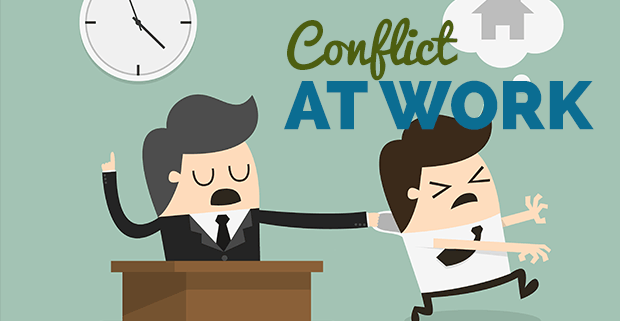 Photo of Overtime from Shutterstock.
Photo of Overtime from Shutterstock.
The workplace is a veritable hive of personalities that make an office hum and buzz with productivity. But when people work in close quarters every day, it’s inevitable that people will eventually clash. If not dealt with immediately (and effectively), a constant battle of wills can drain productivity and sap morale. Here are some of the ways you can navigate the minefield of emotions and keep everyone upbeat – and on track.
Soften the blows
I’m the type to speak my mind honestly and without filter; if I like something, I’ll tell you, and if I don’t – I’ll tell you, too. However, I have to remember that not everyone appreciates my delivery style. Experts suggest lessening the sting of bad news by sandwiching direct feedback between a positive statement and a neutral/positive closing one. For example, if Debbie has great customer service skills but lacks follow-through on her paperwork, buffer your critique with a statement that goes something like this: “Debbie, our customers often tell us how great you are at addressing their concerns. I’d like to see you put the same amount of effort into your paperwork, which will help resolve each customer’s case as quickly as possible.”
Learn their MO
Everyone has a different style of working. Freelancing suits me well, since I like to work autonomously. Even when I’m working in an office environment, I send emails only when necessary and I take/make phone calls if an in-person meeting isn’t at all possible. Others prefer being updated at every step in a process and send copious emails to supplement their need to know. To circumvent the onslaught, instead of asking them to cease-and-desist, I simply I set up separate inboxes for the people who contact me most, and only check/reply to those emails at designated times so I’m not overwhelmed. This helps me to stay in touch and keep people abreast of a project’s status, while helping me to stay on top of my deadlines.
Pick your battles
Sometimes disagreements come in the form of opposing viewpoints, and other times it’s just a matter of miscommunication. And when there is a clash of wills, projects can become delayed. When going head to head with someone, it’s important not to take things personally and understand where priorities lie. If you feel you’re right, sometimes an appeal to a higher-up or objective party can help expedite a process. Ultimately, if the issue reaches a stalemate, sometimes it’s best to just let things go; you’re part of a team working toward the same goal and that’s all that matters.
Sometimes it’s best to just let things go; you’re part of a team working toward the same goal and that’s all that matters.
Stay in your lane
Sometimes people argue over points when they don’t have as much expertise as the other party. While it’s okay to have an opinion, it’s important to know when to stay in your lane; belabouring a point for the sake of an argument can undermine another person’s authority. While you may feel well-versed on a subject or an issue, unless you ARE the expert, rest assured that someone will know more about it than you do. Instead of feeling threatened, ask that person for feedback or advice on the pertinent matters. Who knows, you may even learn something new in the process.
What tips do you have for diffusing conflict in the workplace? How do you handle personality clashes? We’d like to know! Leave your comments below.